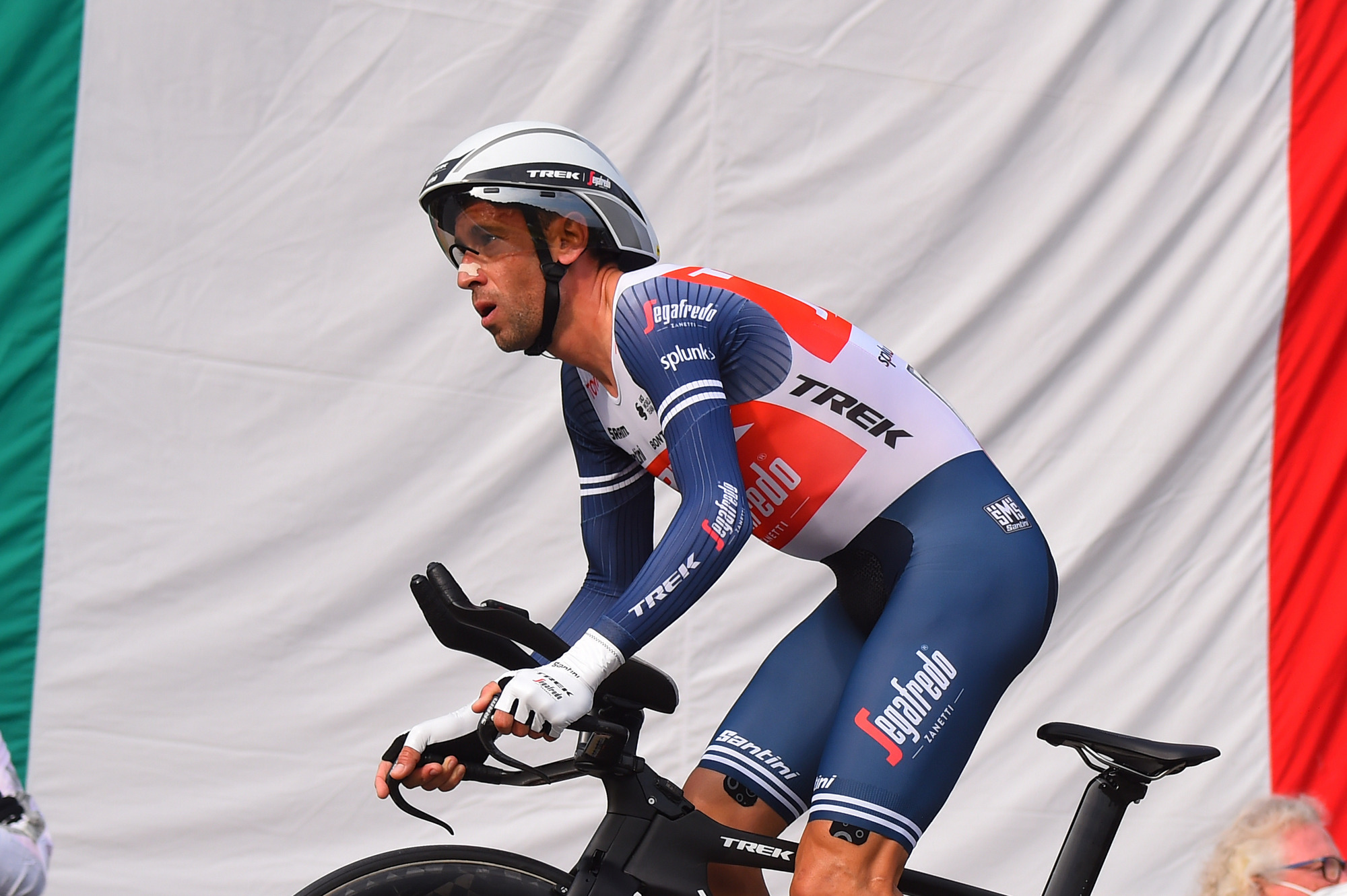Vincenzo Nibali's Giro d'Italia challenge suffers setback in Valdobbiadene time trial
Italian insists GC picture will only be clear after Sunday's summit at Piancavallo

Vincenzo Nibali crossed the finish line in the heart of Prosecco wine country only to be handed a bottle of San Pellegrino sparkling water by his soigneur. It was that kind of a day. A Giro d’Italia challenge doesn’t always sparkle in the anticipated manner.
On the eve of the stage 14 time trial, Trek-Segafredo coach Paolo Slongo told Cyclingnews that he believed Nibali could break even with dangerman Wilco Kelderman (Team Sunweb) and make gains on the rest of the established general classification contenders
His displays in the time trials at last year’s Giro certainly suggested Nibali could thrive on the road to Valdobbiadene, but instead his afternoon fell flat.
Nibali was already trailing on the early haul up the fourth-category wall of Ca’ del Poggio, where he recorded the 19th best time at the top. Although he picked up some places at the next intermediate check, he would lose clumps of time to both Kelderman and maglia rosa João Almeida (Deceuninck-QuickStep) by day’s end.
He came home 23rd on the rolling time trial, 2:54 off winner Filippo Ganna (Ineos Grenadiers), and, more relevantly, 1:33 behind Almeida and 1:17 down on Kelderman. In the overall standings, Nibali remains fifth overall, but he is now 2:30 behind Almeida and 1:34 down on Kelderman.
Although he gained ground on rivals like Astana' Jakob Fuglsang and NTT climber Domenico Pozzovivo, his pathway to overall victory has narrowed.
At the finish, Nibali preferred not to speak to the waiting reporters, and his thoughts on the day’s stage were instead relayed via a communiqué from his Trek-Segafredo team later on Saturday. The time trial is the race of truth, so the cliché goes, but that doesn’t mean its verdict isn’t open to interpretation. Nibali declared himself satisfied with his power numbers, and save for his losses to Almeida and Kelderman, not entirely displeased with his afternoon’s work.
Get The Leadout Newsletter
The latest race content, interviews, features, reviews and expert buying guides, direct to your inbox!
“The analysis of today's time trial should be done on a personal level, and also in comparison with others. For my part, the most objective numbers on performance come from my Garmin and, honestly, what I saw was comforting,” Nibali said. “My power was remarkable, in line with the expectations I had set with Paolo Slongo at the start.”
The numbers that denote Nibali’s current deficit in the overall standings are surely more troubling. He was in a similarly compromising position at this point of the Giro four years ago, only to produce a remarkable turnaround in the Alps, but the context is altogether different here.
Nibali’s Trek-Segafredo squad – now missing Giulio Ciccone, who abandoned with bronchitis on Saturday – have rather less depth than the cadre of strongmen at Astana who flanked him during that dramatic heist in 2016. In this novel October Giro, meanwhile, it’s not yet clear if weather conditions will allow the race to tackle its full complement of mountains in the final week.
All the while, the effects of the coronavirus pandemic mean that there is no guarantee that the finish line will be in Milan on October 25. Sunday’s mountain stage to Piancavallo thus takes on outsized importance in Nibali’s quest to become, at 35 years of age, the oldest Giro winner in history.
“The time at the finish was certainly not bad. If I compare it with the others it was okay, with the only exceptions of Kelderman and Almeida, who went really strong, the pink jersey above all,” Nibali said, before echoing his comments from the eve of the third weekend. “Anyway, the real balance of the race must be done after tomorrow’s mountain stage to Piancavallo.”

Barry Ryan was Head of Features at Cyclingnews. He has covered professional cycling since 2010, reporting from the Tour de France, Giro d’Italia and events from Argentina to Japan. His writing has appeared in The Independent, Procycling and Cycling Plus. He is the author of The Ascent: Sean Kelly, Stephen Roche and the Rise of Irish Cycling’s Golden Generation, published by Gill Books.